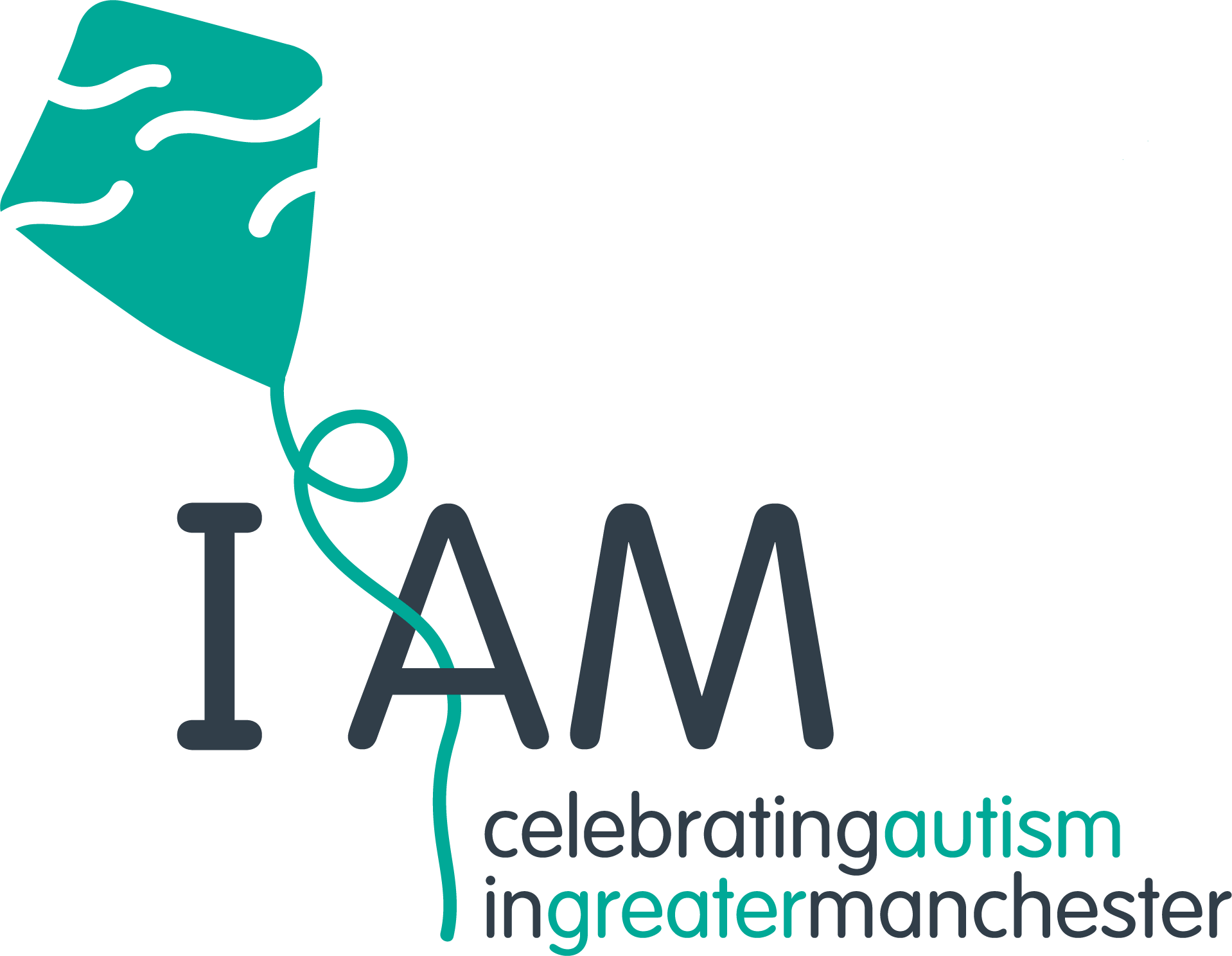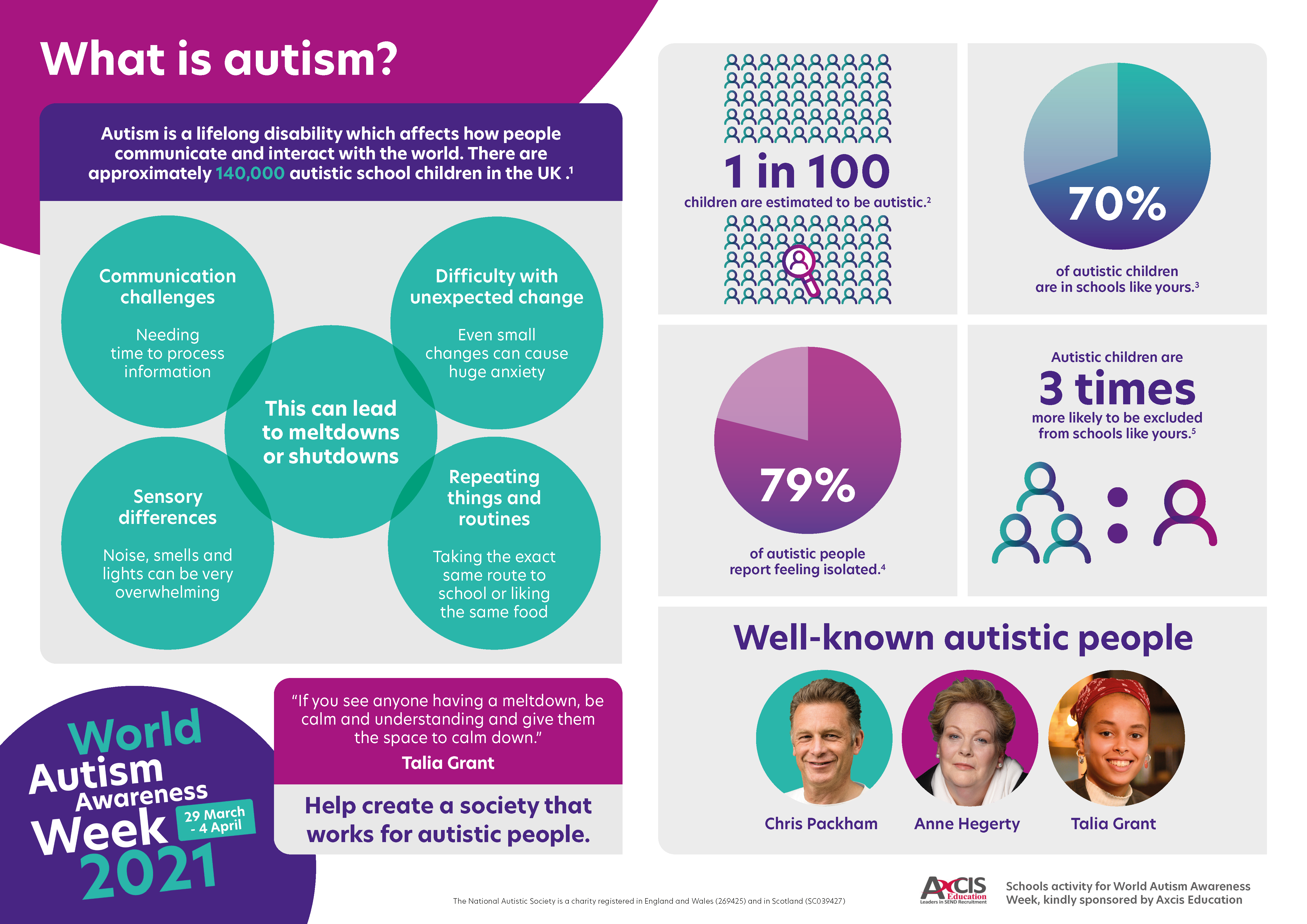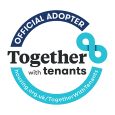This week we are sharing resources to help raise awareness of Autism or Autistic Spectrum Disorder (ASD) and how it affects the way 1% of people living in the UK communicate and interact with the world around them.

MSV has a number of supported housing schemes right across the business to help support people who have been diagnosed with a physical or learning disability.
The schemes are based across the North West including Rochdale, Manchester and Tameside. Staff work collaboratively with external agencies such as social services and career givers to ensure our tenants living in these schemes have access to all the services and support they require whilst living independently.
“MSV is really progressive and staff feel supported,” says Extra Care Scheme Manager Eilish.
The last year has been very challenging, but staff continue to work around the clock to provide support for tenants. Extra Care Scheme Manager Eilish, says that “MSV is really progressive and staff feel supported.” Eilish works at one of our supported schemes for tenants aged 16 to 60 who live with a number of complex and challenging behavioural issues.
700,000 in the UK are on the Autistic Spectrum. It is known as a spectrum because whilst all people with autism share certain challenges, they will be affected by them in different ways. Some people may lead relatively independent lives while others require dedicated support every day.
What causes Autism?
- Research indicates that genetics are involved in the vast majority of cases.
- Children born to older parents are at a higher risk of having autism.
- Parents who have a child with ASD have a 2 to 18 per cent chance of having a second child who is also affected.
- Studies have shown that among identical twins, if one child has autism the other will be affected about 36 to 95 per cent of the time. In non-identical twins, if one child has autism, then the other is affected about 31 per cent of the time.
- Over the last two decades, extensive research has asked whether there is any link between childhood vaccinations and autism. The results of this research are clear: Vaccines do not cause autism.
|
Intervention and support
|
Associated medical and mental health conditions
- Autism can affect the whole body.
- Attention Deficient Hyperactivity Disorder (ADHD) affects an estimated 30 to 61 per cent of children with autism.
- More than half of children with autism have one or more chronic sleep problems.
- Anxiety disorders affect an estimated 11 to 40 per cent of children and teens on the autism spectrum.
- Depression affects an estimated 7% of children and 26% of adults with autism.
- Children with autism are nearly eight times more likely to suffer from one or more chronic gastrointestinal disorders than are other children.
- As many as one-third of people with autism have epilepsy (seizure disorder).
- Studies suggest that schizophrenia affects between 4 and 35 per cent of adults with autism. By contrast, schizophrenia affects an estimated 1.1 per cent of the general population.
Here is a list of some common challenges people with ASD may face.
Click below to find out how each one may affect peoples lives in different ways -:
Autistic people have difficulties with interpreting both verbal and non-verbal language like gestures or tone of voice. Some autistic people are unable to speak or have limited speech while other autistic people have very good language skills but struggle to understand sarcasm or tone of voice. Other challenges include:
- taking things literally and not understanding abstract concepts
- needing extra time to process information or answer questions
- repeating what others say to them (this is called echolalia)
Autistic people often have difficulty 'reading' other people - recognising or understanding others' feelings and intentions - and expressing their own emotions. This can make it very hard to navigate the social world. Autistic people may:
- appear to be insensitive
- seek out time alone when overloaded by other people
- not seek comfort from other people
- appear to behave 'strangely' or in a way thought to be socially inappropriate
- find it hard to form friendships.
With its unwritten rules, the world can seem a very unpredictable and confusing place to autistic people. This is why they often prefer to have routines so that they know what is going to happen. They may want to travel the same way to and from school or work, wear the same clothes or eat exactly the same food for breakfast.
- Autistic people may also repeat movements such as hand flapping, rocking or the repetitive use of an object such as twirling a pen or opening and closing a door. Autistic people often engage in these behaviours to help calm themselves when they are stressed or anxious, but many autistic people do it because they find it enjoyable.
- Change to routine can also be very distressing for autistic people and make them very anxious. It could be having to adjust to big events like Christmas or changing schools, facing uncertainty at work, or something simpler like a bus detour that can trigger their anxiety.
Autistic people may experience over-or under-sensitivity to sounds, touch, tastes, smells, light, colours, temperatures or pain. For example, they may find certain background sounds like music in a restaurant, which other people ignore or block out, unbearably loud or distracting. This can cause anxiety or even physical pain. Many autistic people prefer not to hug due to discomfort, which can be misinterpreted as being cold and aloof.
Many autistic people avoid everyday situations because of their sensitivity issues. Schools, workplaces and shopping centres can be particularly overwhelming and cause sensory overload.
Many autistic people have intense and highly-focused interests, often from a fairly young age. These can change over time or be lifelong. Autistic people can become experts in their special interests and often like to share their knowledge. Greta Thunberg's intense interest, for example, is protecting the environment.
Like all people, autistic people gain huge amounts of pleasure from pursuing their interests and see them as fundamental to their wellbeing and happiness.
Being highly focused helps many autistic people do well academically and in the workplace but they can also become so engrossed in particular topics or activities that they neglect other aspects of their lives.
Anxiety is a real difficulty for many autistic adults, particularly in social situations or when facing change. It can affect a person psychologically and physically and impact quality of life for autistic people and their families.
It is very important that autistic people learn to recognise their triggers and find coping mechanisms to help reduce their anxiety. However, many autistic people have difficulty recognising and regulating their emotions. Over one third of autistic people have serious mental health issues and too many autistic people are being failed by mental health services.
When everything becomes too much for an autistic person, they can go into a meltdown or shutdown. These are very intense and exhausting experiences.
A meltdown happens when someone becomes completely overwhelmed by their current situation and temporarily loses behavioural control. This loss of control can be verbal (eg shouting, screaming, crying) or physical (eg kicking, lashing out, biting) or both. Meltdowns in children are often mistaken for temper tantrums and parents and their autistic children often experience hurtful comments and judgmental stares from less understanding members of the public.
A shutdown appears less intense to the outside world but can be equally debilitating. Shutdowns are also a response to being overwhelmed but may appear more passive - eg an autistic person going quiet or 'switching off'. One autistic woman described having a shutdown as: 'just as frustrating as a meltdown, because of not being able to figure out how to react how I want to, or not being able to react at all; there isn’t any ‘figuring out’ because the mind feels like it is past a state of being able to interpret.'
Love on the SpectrumFinding love can be hard for anyone. For young adults on the autism spectrum, exploring the unpredictable world of dating is even more complicated. We recommend a Netflix series called: 'Love On The Spectrum" - an Australian dating show that matchess people with disabilities looking for love. Love on the Spectrum is back for a second series on Netflix now. Watch the official trailer below: |
History’s 30 Most Inspiring People on the Autism Spectrum
Applied Behavior Analysis Programs Guide, has complied a list of History's 30 most inspiring people on the autism spectrum. Although a retrospective diagnosis of autism is near impossible, the figures on this list have been carefully chosen by experts (both medical professionals and those who experience autism first-hand) who agree that every person listed here probably shows or showed autistic tendencies, and we’ve noted those cases in which some experts disagree with others.
Despite the challenges associated with the identification of autism, this list is meant to be helpful and inspiring to those who themselves fall somewhere on the spectrum.
Press pause to find out more about each person in the video below:
Housing advice by the Greater Manchester Autism ConsortiumThe consortium of social services departments and Clinical Commissioning Groups in Greater Manchester. Their website provides information and advice for autistic people, family members and carers. Including useful housing guides and maps for each borough in Greater Manchester with help and support resources. Find out more |

Charity Spotlight - I AM
This month’s Charity Spotlight has been nominated by the Neighbourhoods Central Team for £150 donation from our Community Initiative Fund.I AM is a local Manchester-based charity with a mission to create communities of support across Greater Manchester for people on the autistic spectrum, which enable personal and professional development.
Check out their website: www.i-am-autism.org.uk to learn more about the range of services they offer and ways you can give to support their work through your everyday activities such as online shopping!










